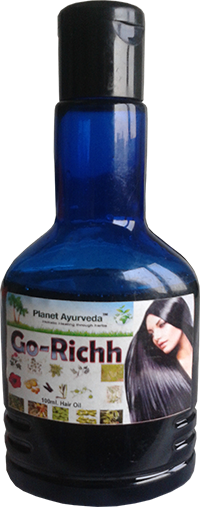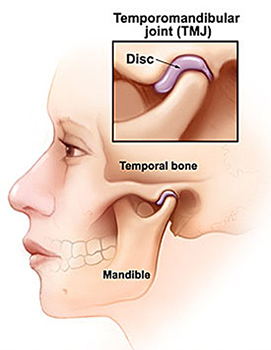We don't even have the idea how important and blessed we are. This thing comes to our mind when we suffer from the health complications. It is sad that health issues are increasing rapidly. Along with the heart diseases and kidney failure, liver complications are also increasing. Though there is advancement in technology but still it's not that much easy to go for organ transplant or treatment.
People are looking for a safe way to resolve the liver cirrhosis. There are various herbs identified in Ayurveda which are packed with healing properties. Thus the Ayurvedic treatment of liver cirrhosis is quite effective without resulting from the negative impacts on health. These are the herbs - Bhumi Amla (Phyllanthus niruri), Kalmegh (Andrograhis paniculata), Bhringraj (Eclipta alba), Sharpunkha (Tephrosia purprea), Kaasni (Cichorium intybus), Katuki (Picorrhiza kurrao), Makoy (Solanum indicum) and Punarnava (Boerhavia diffusa), Phyllanthus niruri (Bhumi amla), Kalmegh (Andrographis paniculata), Katuki (Picorrhiza kurroa), Punaranava (Boerrhavia diffusa), Makoy (Solanum nigrum), Kasni (Cichorium intybus), Biranjasipha (Achiellea millefolium), Jhavuka (Tamarix gallica), Himsra (Capparis spinosa) and Haritaki (Terminalis chebula). All these herbs support the good liver health and also help in the regeneration of new liver cells.What is liver cirrhosis?
Liver Cirrhosis is the condition which is characterized by the scarring of the liver due to the long-term and continuous liver damage. In this condition scar tissue replaces healthy tissue in the liver and results in the poor liver functions. Scarring of the tissues is mostly caused by the prolonged exposure to alcohol or viral infections.
Causes of liver cirrhosis
- Excessive alcohol consumption
- B and C viral hepatitis
- Fat accumulation in the liver
- Iron buildup in the body (hemochromatosis)
- Cystic fibrosis
- Autoimmune hepatitis
- Damage of the bile ducts (primary biliary cirrhosis)
- Genetic digestive disorder (Alagille syndrome)
- Hardening and scarring of the bile ducts (primary sclerosing cholangitis)
- Certain medications such as methotrexate
Symptoms of liver cirrhosis?
- Nose bleeding
- weight loss
- Decreased appetite
- Jaundice (yellow discoloration)
- Anorexia
- Itchy skin
- Weakness
- Abdominal swelling (ascites)
- Swelling of the legs (edema)
- Impotence
- Gynecomastia is the condition in which there is development of breast tissues in males.
Ayurvedic outlook
According to Ayurveda, liver cirrhosis is due to the aggravation of pitta dosha. So the aggravated pitta dosha impairs the liver function and further leads to the vitiation of other doshas as well. Rasa and rakta dhatus are intoxicated. Due to this complexion of skin, digestion of food, feeling of hunger, production of blood gets hampered.
Ayurvedic treatment of liver cirrhosis
Planet Ayurveda offers the "Liver Care Pack" for the treatment of liver cirrhosis. This pack contains the four herbal products which are prepared by using the standardized extracts of herbs. All the products are prepared under the guidance of highly experienced MD Ayurveda doctors. All the products are free from any preservatives, chemicals, colors and starch.
List of products
Liver Care Pack Contains:
- Yakrit Plihank Churna - 1 pack (200 grams)
- Phyllanthus Niruri - 2 bottles (120 capsules)
- Echinacea Capsules - 2 bottles (120 capsules)
- Liver Detox Capsules - 2 bottles (120 Capsules)
Product Description
1. Yakrit Plihantak Churna:
For the Ayurvedic treatment of liver cirrhosis, Planet Ayurveda offers the yakrit plihantak churna. This herbal product is available in the form of powder. This herbal product is prepared from the pure extracts of these herbs like Bhumi Amla (Phyllanthus niruri), Kalmegh (Andrograhis paniculata), Bhringraj (Eclipta Alba), Sharpunkha (Tephrosia purprea), Kaasni (Cichorium intybus), Katuki (Picorrhiza kurroa), Makoy (Solanum indicum) and Punarnava (Boerhavia diffusa).
Uses -
- It helps to maintain the overall good health of liver.
- It helps to remove toxins from the body.
- It helps in regeneration of new liver cells.
Dose - 1 teaspoonful twice a day with plain water after meals.
2. Phyllanthus Niruri Capsules:
It is also an amazing formulation of planet Ayurveda for the treatment of cirrhosis. This herbal formulation is prepared from the pure extracts of herb Phyllanthus niruri (Bhumi amla). This herb has the great medicinal importance and helps to maintain the good health of liver.
Uses -
- It helps in treatment of hepatitis infections.
- It is packed with anti-bacterial, anti-spasmodic and analgesic properties.
- It helps to provide relief in nose bleeding and abdominal inflammation.
Dose - 2 capsules twice a day with plain water after meals.
3. Echinacea Capsules:
Echinacea Capsules are prepared from the pure extract of kalmegh (Andrographis paniculata) which belongs to family Acanthaceae.
Uses -
- It is to treat hepatitis and Jaundice.
- It helps to maintain the good health of immune system.
- It helps to remove toxins from body.
- It has antimicrobial and anti-inflammatory properties also.
- It helps in good circulation of blood.
Dose - 2 capsules twice a day with plain water after meals.
4. Liver Detox Formula:
As the name suggests that these capsules help in the detoxification of liver. Liver detox capsules is an effective Ayurvedic treatment of liver cirrhosis.
These capsules are obtained from pure extracts of herbs such as Katuki (Picorrhiza kurrao), Punaranava (Boerrhavia diffusa), Kalmegh (Andrographis paniculata), Makoy (Solanum nigrum), Kasni (Cichorium intybus), Biranjasipha (Achiellea millefolium), Jhavuka (Tamarix gallica), Himsra (Capparis spinosa) and Haritaki (Terminalia chebula).
Uses -
- It helps in strengthening and detoxification of liver.
- It is used in treatment of hepatitis.
- It helps in regeneration of new liver cells.
Dose - 2 capsules twice a day with plain water after meals.
Guidelines
- Avoid hot, spicy and oily foods.
- Take vegetarian diet.
- Avoid refined flour, canned and preserved foods like cakes, pastries and chocolates.
- Avoid carbonated drinks.
- Take proper rest.
- Alcohol consumption must be avoided completely.























